I was born in Nacogdoches, Texas at Star Farm. I am the littlest one. Bonnie and Clyde, my mom and dad, were in another pen.
I was the only one who didn’t bite and pee on her so I got to come home with Stacy in this little carrier.
Here I am in Aunt Robin’s bathtub. I spent the night here before my flight home.
 That Texas grass was mighty tasty!
That Texas grass was mighty tasty!
Cousin Madison fed me my milk!
Let’s go! I flew on the same airplane as Stacy but rodents were not allowed in the cabin. I had to ride in the heated dog area in cargo.
Home turned out to be another bathtub, but this one was bigger!
Fortunately it was big enough for a regulation Potty Bowl.
Now we’re talking! A cave and some grass!
Stacy kept looking at me. She held me a lot, too.
The bathtub was always full of food.
Washington grass is pretty good, too.
The colossal Waffle King, ruling his tiny kingdom!
I got to wander around the house. I liked to hide.
Do you recognize my White Rabbit Rug?
I loved my White Rabbit Rug from the very beginning!
Here I am eating Stacy’s sweater. I’m hungry!
Here I am in the kitchen. That’s my kitchen door, the one I open and close all by myself now!
I’m getting pouffy here, just happy to be home.
[originally published January 21, 2013]

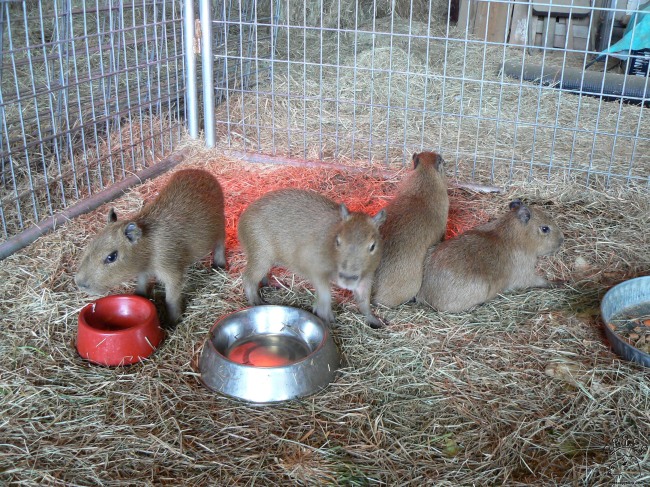

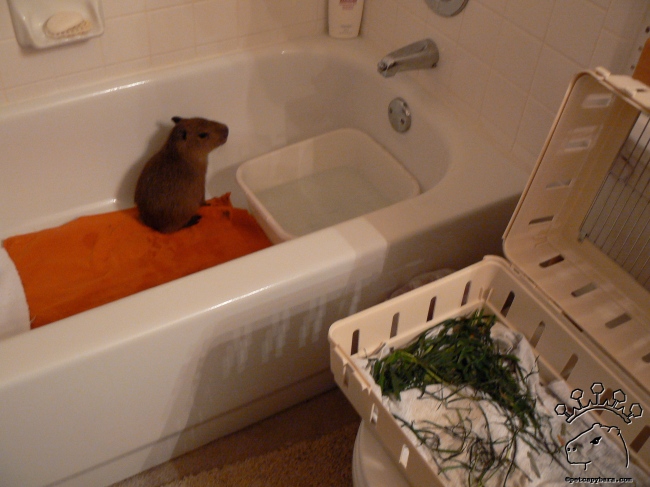




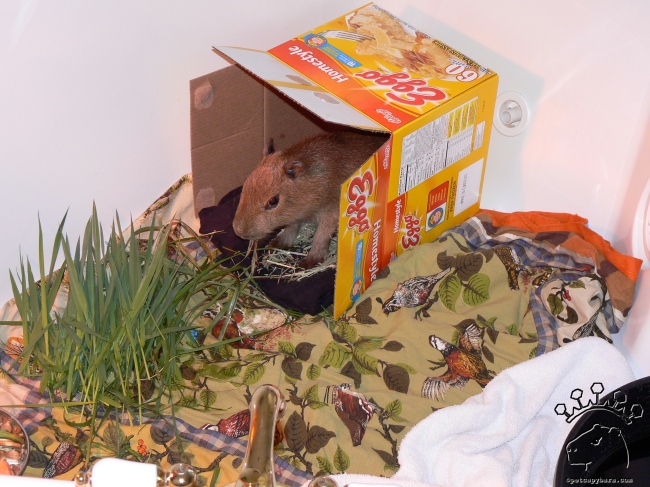
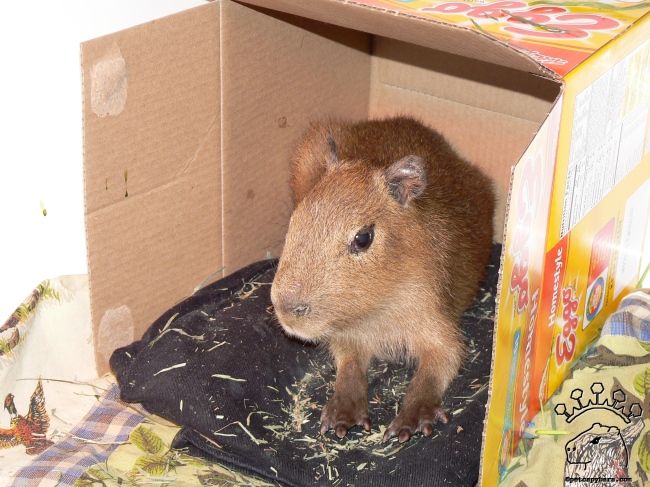







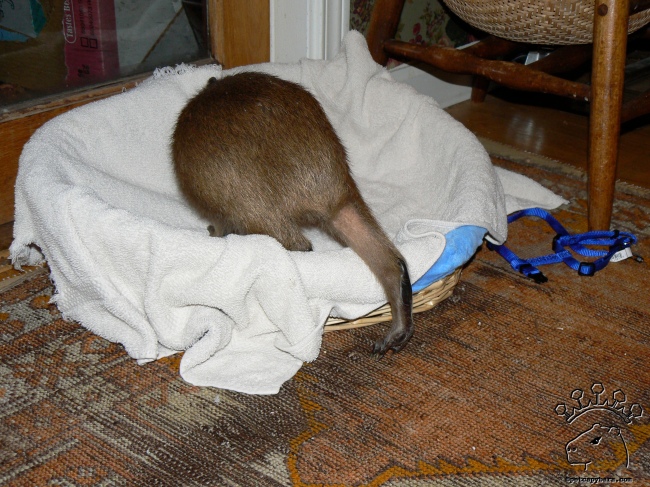

Hi, I have been looking into adopting a Capybara of my own. Can you legally have a Capybara in Washington?
LikeLike
It is currently legal to own a capybara in Washington State. However, your county, city, and neighborhood (CC&R’s) will also have laws regarding animals. The regulations are often found in several areas of your state and local code, and maybe in your deed, so be certain to check your wildlife laws, pet ownership laws, and review the definition of “exotic” animals. In addition, most cities have regulations regarding animal housing: zoning, lot size, setbacks, fencing, permits, etc. This is true of any state that “allows” capybaras. Furthermore, anyone who rents property should be prepared to hustle if you lose your lease and have to suddenly relocate. Capybaras can live 18 years (if you’re lucky) and they don’t adapt easily to change, so providing a stable long-term environment is really important.
I am in the milder Puget Sound region of Washington State. This abnormally freezing cold winter has been very difficult for Dobby. I have had to keep him indoors to prevent frostbite which has killed 6 pet capybaras that I know of. He is almost 8 years old now, and much more mellow than he was at 2 or even 5. Keeping him indoors this much during his younger friskier years would have been impossible, and frostbite would have been the inevitable result. Please carefully evaluate your winter weather.
Also, please take this quiz if you are considering a pet capybara.
LikeLike